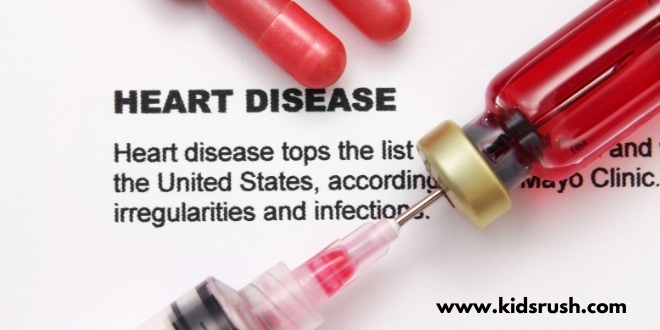Congenital heart disease in children
Congenital heart disease in children is a heart disorder that affects the child born with them and their family. Discover in this article what are the causes and how you can deal with a disease of this type.
We speak of congenital heart disease when the structure of the heart is altered from gestation. That is, the child is born with this modified organ and it is even possible to see it already in pregnancy.
Its frequency is not less, since it is estimated that up to 1% of children born have congenital heart disease. This is a high value, hence the importance of this pathology for pediatric services.
When a family receives the news of congenital heart disease, the problem is bigger than the disease itself. Parents know that their child will have to go through surgery and a long process of adaptation.
The prenatal diagnosis of these malformations has improved greatly. Some diseases can be detected and solved, even with surgery during pregnancy. This improves the chances of survival dramatically.
Causes of congenital heart disease

For congenital heart disease to occur, certain factors must be combined. The causes are varied, but some are known to be more frequent and identifiable than others. Among them are the following:
- Genetics: when there has been a congenital heart disease in the family, it can recur with another individual. Genetics doubles the risk of being born with a heart malformation. Besides, there are chromosomal diseases that are associated with specific disorders of the structures of the heart, such as Down syndrome or Turner syndrome.
- Nutrition: If the mother suffers from nutritional deficiencies during or before pregnancy, there may be repercussions on the fetus. The lack of iodine in the maternal diet is associated with congenital heart disease and uncontrolled diabetes as well, due to the constant high blood glucose values.
- Toxins: Mothers are sometimes exposed to toxic substances, almost always unintentionally. Some medications and radiation have the adverse effect of malformations. As for habits, alcohol and tobacco are also possible causes.
- Infectious Diseases: Rubella is a classic example of a maternal infection that affects the formation of the fetus’s organs.
Read Also: Basic care for atopic dermatitis in infants
Prenatal diagnosis
Advances in complementary methods have improved the early detection of congenital heart disease. Pregnancy control ultrasounds are performed with increasingly powerful and better definition equipment.
Almost uniformly, three obstetric ultrasounds are performed throughout the world to assess complications and the evolution of pregnancies. In each of them, it is possible to detect a malformation, not to prevent them, but to treat them properly.
First-trimester ultrasound can primarily assess suspected chromosomal abnormalities, such as Down syndrome. Its presence is suggestive of a heart malformation.
More in-depth, the ultrasound machine used in real-time the movement of cardiac structures and their conformation. This is how valve insufficiencies are detected early, for example.
These three routine ultrasounds are complemented by other studies when there is an abnormal detection. They can perform new ultrasounds or go to a genetic test through the amniotic fluid.
Read Also: How to prevent urine infection in children
Parents Facing Congenital Heart Disease

The health team must know that, before the diagnosis of congenital heart disease, parental support is key. Accompaniment in the process and psychological support must mediate.
The explanation of the approach plan should be clear to evacuate all doubts. Parents do not have to understand, in the first instance, what surgery will be done or why one will not be done if that is the decision.
But nothing ends in the first months of life. Many patients are reoperated on new occasions and comorbidities add to the logical fear. A cold or flu in these children upsets the entire family routine.
The economic factor is not minor. These are not cheap surgical approaches. Also, if medications are used, they are for long-term treatments. Sometimes we talk about more than 3 or 4 drugs that cannot be stopped without a medical indication.
Read Also: How to cure a dry cough in children
Congenital heart disease is not what it used to be
Although it seems like a topic that is said with many pathologies, indeed, congenital heart disease does not have the same prognosis as 30 years ago. Advances in this field have been notable and the life expectancy of the little ones who suffer from them has improved.
It is important that parents have adequate advice and that they feel secure in the healthcare team where they place their trust. Congenital heart disease is a diagnosis that will always accompany them. Published By kidsrush.com
References
